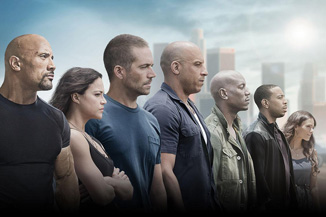|
|
Top Film Industry Stories of 2015
|

|
Behind the camera, the return of Project Greenlight started a discussion about the role that diversity plays in creating film and whether it should be determined through casting (as suggested by Matt Damon, who was probably more focussed on creating a successful The Apprentice-like TV show), or more broadly through the collaborative process of film-making.New at BOP: Share & Save
![]() Tweet
Tweet
![]() Print this column
Print this column
Again, these issues are complex and require perspective. As Viola Davis pointed out in her Emmy acceptance speech, “you cannot win an Emmy for roles that are simply not there”, which is one reason why every Oscar nominee in 2015 was white. Opportunities for actors of color are much rarer than opportunities for white actors, so it matters more when a white actor is cast in an “Asian” role than it does when an Asian actor is cast in a “white” one. But signing big movie stars helps get movies financed, and most of the big movie stars happen to be white – which is why Christian Bale was cast as Moses in 2014's Exodus: Gods and Kings.
The Martian did have a diverse cast and scheduling problems for Irfan Khan meant he was replaced by Chiwetel Ejiofor, the biggest name the film-makers could get at short notice. But on the other, “sorry, only one East Asian person can work at NASA” is not a great reason to not cast an Asian actor in an Asian role. And ultimately, the lack of acting opportunities for non-white actors, and the roles (as Aziz Ansari observed) are “often defined by ethnicity and often require accents” means that fewer non-white people pursue acting as a career, which in turn means that it’s harder to find the right actors for non-white roles.
Although LGBT characters are nearly absent in mainstream film, there were plenty of independent and prestige films focussed on LGBT issues, such as Carol, Stonewall, About Ray, Freeheld and The Danish Girl. Yet these were not free of controversy, either. Stonewall received the most attention for its choice of a fictional white Midwesterner as the main character, while characters based on real life Latina and black trans protestors were pushed into secondary roles. Other films such as Freeheld and The Danish Girl were pointed out for telling their stories from the straight perspective with straight characters responding to a trans person in their life, while About Ray suffered some criticism for casting a straight actress, Elle Fanning, in the lead trans role – trans-actors facing a similar Catch-22 as non-white actors.
These discussions are starting to have an impact on Hollywood, which is re-evaluating itself to address its biggest challenge of how to extract more revenue from an increasingly diverse America and a global audience.
|
Advertisement |
Diversity is becoming a bigger selling point – the most touted example being Furious 7, which took in over $350 domestic and a further $1.16 billion internationally. No matter where they lived, audiences were able to see someone like themselves doing cool stuff, and they responded by opening their wallets. The diversity in the film is one of the elements of that franchise’s continued success, and other studios are looking to crack that formula (if they haven’t already done so – see Star Wars: The Force Awakens).
Similarly, the success of Straight Outta Compton (which faced questions of its own around the treatment of women) demonstrated once again that there is always an audience waiting for the right movie to come out. Meanwhile, bombs such as Pan and Aloha didn’t fail because of their white-washed casting – they were just bad movies – but those casting choices did turn off a section of the potential audience and ended up making a bad thing worse. So, just as the enormous box office from Birth of a Nation overrode all other concerns, so too is the enormous box office from movies that play to a diverse audience, or that effectively target a large segment of it.
In October, Hollywood bigwigs met for two days to discuss how to address gender parity. The Academy of Motion Pictures Arts & Sciences send out a record number of invitations to join in 2015 with the explicit goal of increasing (albeit fractionally) the diversity of its membership. Over time, the dialogue around equality of opportunity, what it means and - most importantly - how much money it is going to bring in is going to impact the types of movies that get made, the people who are going to make them and potentially even the people who decide which movies get made.
While 2016 is too early to see the full impact of the debates we saw in 2015, you can see which way the wind is blowing. Looking at the release schedule, the all-female Ghostbusters reboot is the only movie that stands out as possibly bringing a different perspective, but other re-treads such as Tarzan, The Jungle Book and Ben-Hur have had to factor in modern sensitivities in plot and/or casting decisions. Meanwhile, Lionsgate and Alex Proyas have taken the unprecedented step of issuing a pre-emptive apology for the casting in Gods of Egypt, stating unequivocally that it did not meet their standards. (From seeing the trailer, they should be apologizing for the movie). Looking further ahead, Disney has signed Ryan Coogler to direct Black Panther and is actively seeking female directors for upcoming Marvel and Star Wars movies.
But regardless of these changes, debates about race, gender, sexuality, equality and how these are treated in Hollywood will be around for the next hundred years.
[ View other BOP Lists ] [ Email this column ]

|
|
|

|
Friday, April 19, 2024
© 2024 Box Office Prophets, a division of One Of Us, Inc.

